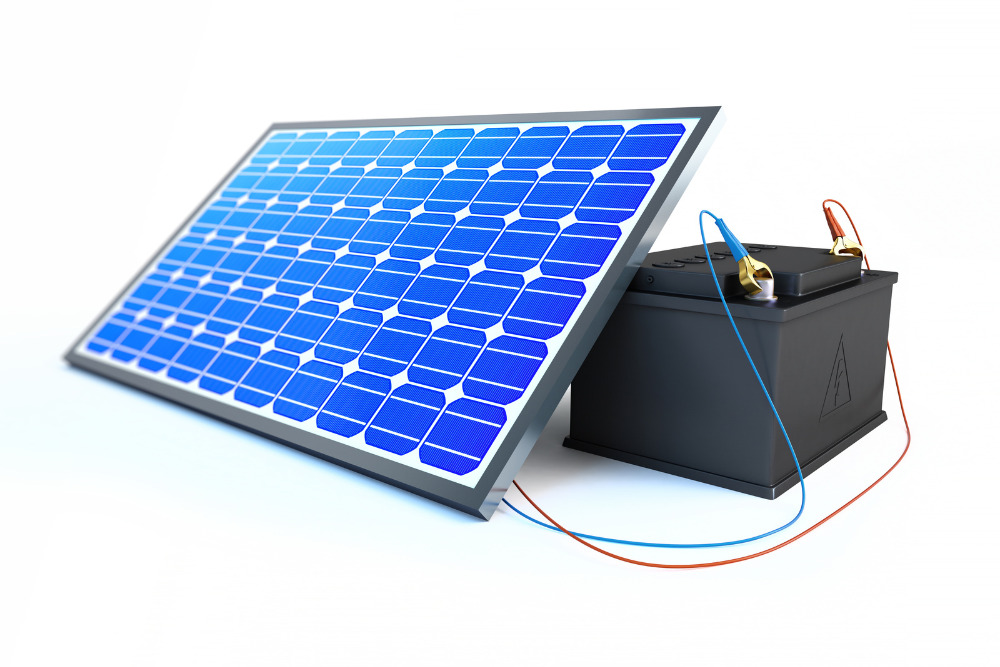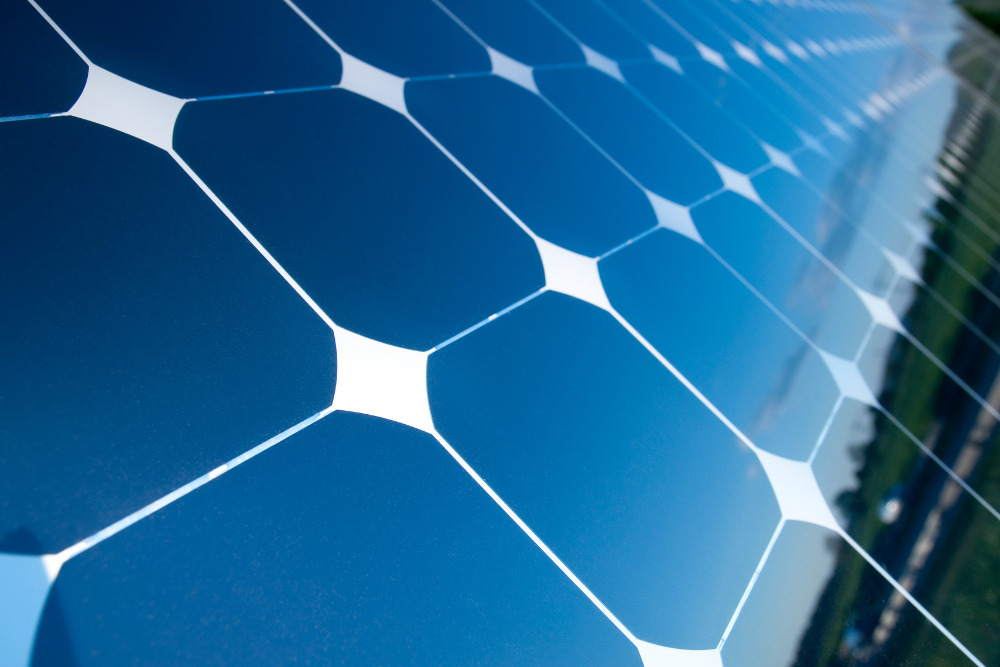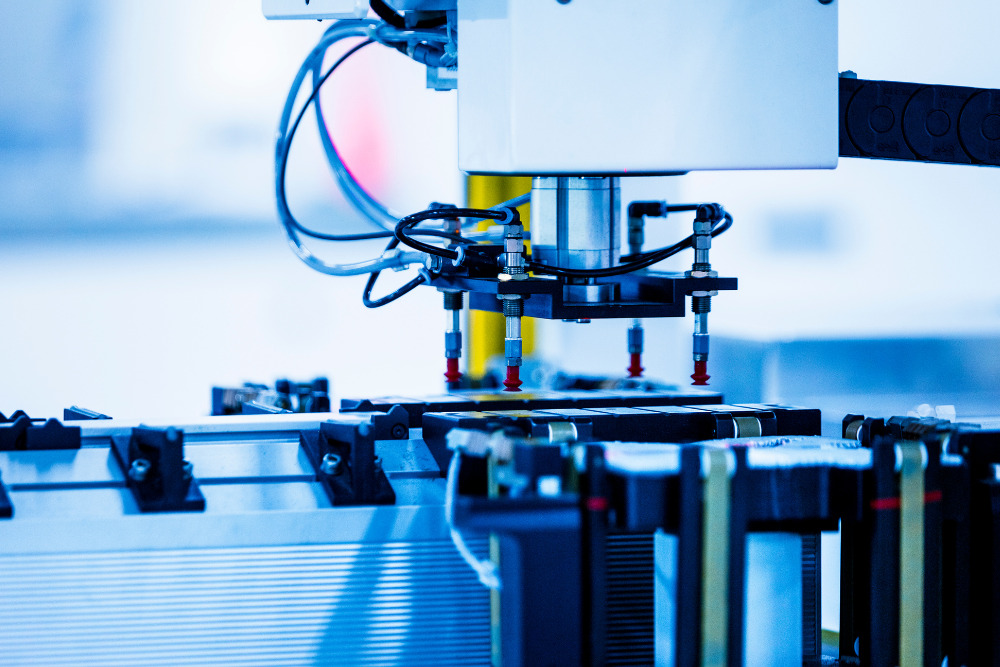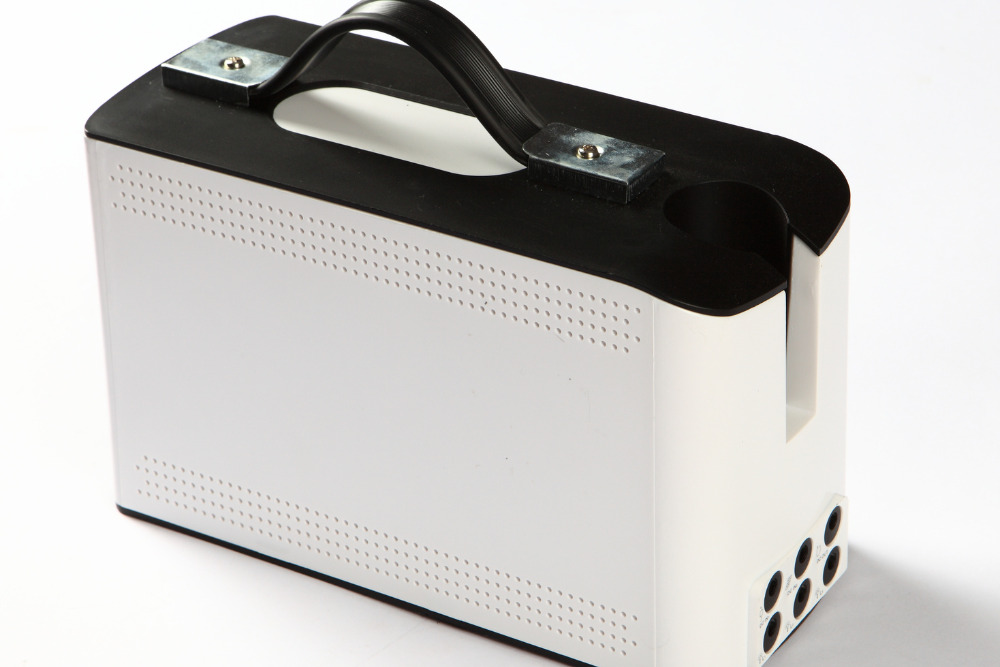
Generally speaking, battery energy storage systems are safe to use if installed and used correctly, but users should be aware of potential safety concerns with solar batteries.
How Do Solar Energy Storage Batteries Work?
In simple terms, adding a storage battery to your solar system then gives it the ability to take the renewable energy from the photovoltaic system and store it for later use. It is stored as DC (direct current) electricity; when it is being used, it is converted into AC (alternating current) electricity that your home can use.
There are four primary types of solar storage batteries. These different solar battery technologies have varying characteristics, such as lifespan, durability, storage capacity, and efficiency.
- Lithium-ion batteries
- Lead-acid batteries
- Flow batteries
- Nickel-based batteries

The excess solar energy generated by your solar panels is stored in the battery for later use. if you do not have a solar battery, then shortfalls (typically on cloudy days or at night) are met by the electricity grid. However, with a solar battery, you are able to store your excess solar energy and use it when needed.
Why Does A Solar Energy Storage System Fail?
There are several reasons why a solar energy storage system may fail. Some of these reasons include:
- Battery Degradation: Though sunshine is the source of the energy you are collecting, heat is not a friend to the lithium battery. Overheating can cause rapid degradation. It can also be caused by an increased rate of use. Battery degradation will result in a large voltage drop and capacity loss. Depending on the battery chemistry, your battery may degrade at a slower or faster rate.
- Sulfation: This happens when sulfur crystals form on the battery’s lead plates, preventing chemical reactions from happening. This generally occurs when the battery has a low charge or low electrolyte level.
- Poor System Design or Installation: If your ESS (energy storage system) is not installed correctly, or it was designed poorly, then it is not going to function properly or at the rate you need it to.
- Environmental Elements: Exposure to the elements will cause any battery to malfunction. The battery was not made to withstand harsh elements such as extreme heat or cold, or an overload of rain or precipitation.
- Electrical or Control System Failures: If your PV system fails, it is going to affect your battery system as well. There are certain reasons your system may fail including poor maintenance, incorrect installation, or environmental factors.
- Software Failures: Advanced software is necessary for a solar panel system and battery storage system to work efficiently and effectively. If the software fails, the energy storage system will not work properly.
- Lack of Maintenance and Monitoring: It is suggested that when you are not using your stored energy, the battery should remain fully charged. That being said, when you do use your battery storage system, you should really only use about 50% of its charge before allowing it to recharge, so monitoring your use is important.
- Overcharging: If you allow your battery to overcharge and do not use the stored energy, it can damage the battery.
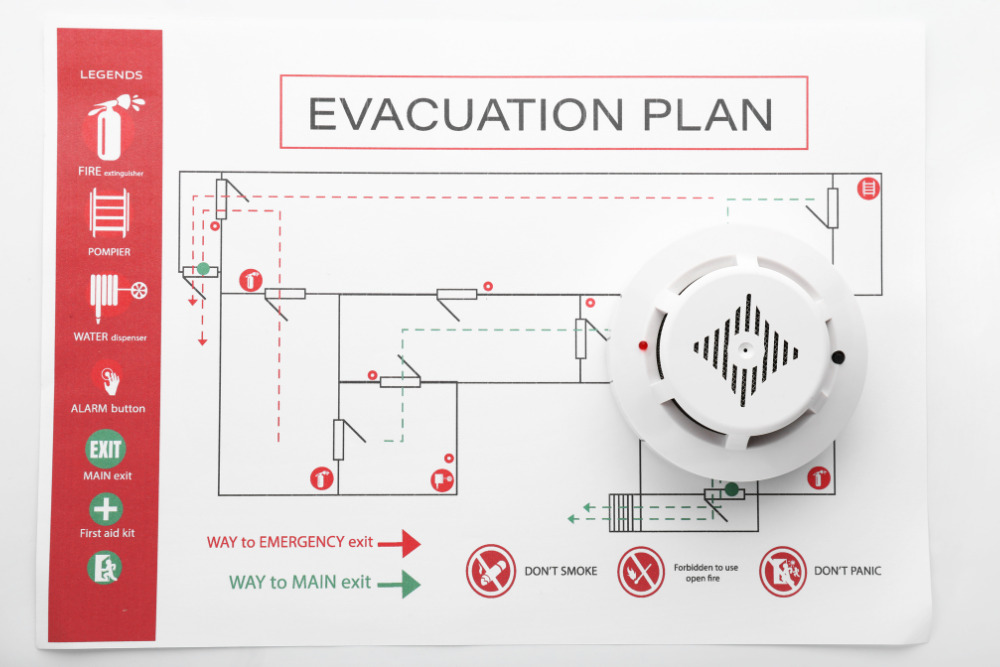
What Happens If A Solar Battery System Fails?
If the battery’s storage technology fails, you will not have a backup energy source.
Beyond the obvious lack of stored energy, there are some risks involved with solar battery system failure, such as:
- Toxic fumes from burning batteries
- Battery fires caused by combustible battery cells
- Leaking caused by manufacturing flaws (which can lead to a risk of fire)
Tips To Ensure Solar Battery Safety
Some ways to ensure solar battery safety include:
- Quality and Standards - Always choose a high-quality battery from a reputable manufacturer that will uphold all safety standards.
- Battery Management Systems (BMS): Using a BMS will allow you to monitor your system’s performance and is good for preventing overcharging.
- Temperature Management: Solar batteries should never be stored in a place with extreme temperatures. For one, this will lead to battery degradation. Secondly, this can be a fire hazard, as the heat can create pressure and cause the battery to explode.
- Installation and Maintenance: The installation of your energy storage system should never be a DIY job. You will need a professional company to install your system and provide regular risk assessments and inspections. Your storage system must meet all local building codes, including fire codes.
- Check the Charge Level: You always want to measure the state of charge and depth of discharge. These are the best way to avoid sulfation.
Safety Protocols For Solar Energy Storage Systems
There are certain safety protocols when it comes to solar energy storage systems. Some of these protocols include:
- Documentation: Always keep manuals, emergency procedures, and safety guidelines somewhere that you can find them easily. These are important in case of an emergency.
- Fire Safety and Prevention: You should always have a fire suppression system in place. You may want to look into installing a sprinkler system where your battery is located in case of a fire to avoid spreading. Also, the use of signage for fire safety may be helpful.
- Emergency Training: Just like fire drills, make sure the people in your household or employees know what to do in case of an emergency. Things such as evacuating the building, calling the fire department, and moving everyone away to safety may seem obvious, but sometimes in the moment, it is hard to decipher what is the correct thing to do.
- Prepare for Severe Weather: If you know a large storm is coming, or inclement weather is on its way, be sure to prepare. You may want to shut your battery system off during the storm to prevent damage or electrical hazards.
